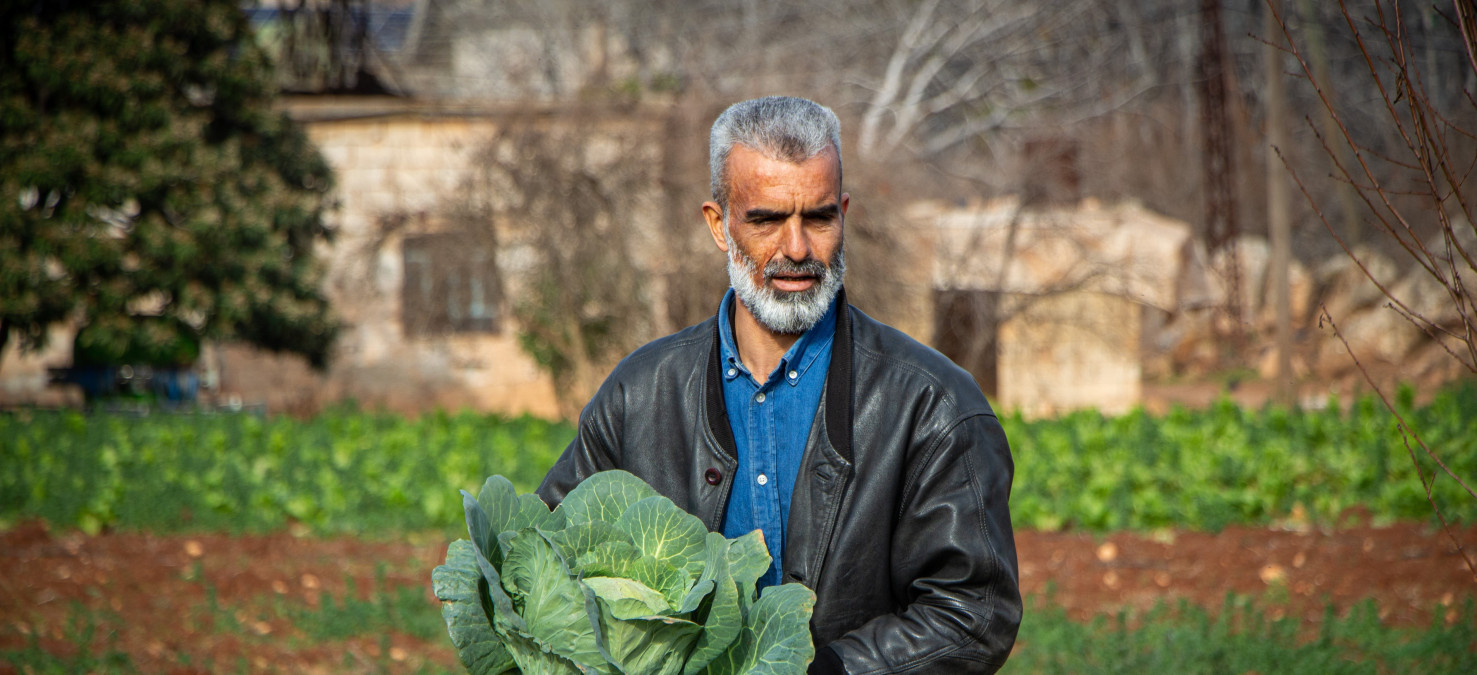Hunger on the horizon: Preventing Syria’s next crisis
Published: Jul 2, 2020 Reading time: 3 minutes Share: Share an articleThe crisis in Syria is becoming more complex, complicating efforts to address the country’s ongoing humanitarian challenges. After more than nine years of armed conflict, Syrians can now add COVID-19 and the skyrocketing price of food to an already uncertain future.

The United Nations Office for the Coordination of Humanitarian Affairs says Syria is facing an unprecedented hunger crisis, as the cost of basic food items has climbed by as much as 200 percent this year, reaching the highest levels since the war began.
For Syrians like Emad, a father of 10 from Idlib province, this latest obstacle may be the tipping point. “Our income has dramatically decreased, but the cost of working our fields and producing vegetables has greatly increased,” he says. “This includes the price of seeds, hoses for irrigation, and diesel, while the prices for our products [in the market] have not kept pace with production costs.”
In spite if this, Emad is frustrated to see that food prices have skyrocketed and “not many people can buy vegetables because they are too expensive.”
But in some ways, Emad is lucky: he has not been forced to flee. “Life has changed a lot during the war; our life conditions and even our society have changed. My income has also decreased, and this has directly affected our wellbeing. Thank God I did not have to leave my home, because my income has always been from farming and working the land.”
To ensure people like Emad can keep farming – and feed Syrians in the process – they need assistance. People in Need (PIN) is providing it, by supporting farmers with tools, trainings, and vouchers to buy seeds and fertilisers.
This type of aid has never been more needed. According to the World Food Programme, 9.3 million people in Syria go to bed hungry every night and one million “literally are on the brink of starvation,” which could trigger another mass exodus. The food crisis is exacerbated by the challenges of delivering cross-border aid as well as a financial crisis in neighbouring Lebanon, which is wreaking havoc on Syria’s war-torn economy. Keeping farmers in business is therefore essential. And yet, the longer these compounding crises persist, the harder farming will become.
Mohamed, a 55-year-old farmer in northwest Syria, says he’s tired of being “in debt every day.” To support his family of five he needs to earn at least 3,000 Syrian pounds daily for basic items, but he struggles to earn 2,000.
Still, Mohamed is trying to stay upbeat, living his life according to the maxim, “Be optimistic and you will find welfare.” In many parts of Syria these days positive sentiment like that is a rare commodity worth nurturing.
***
In 2019, PIN supported 8,459 farmers with funding from the EU’s European Civil Protection and Humanitarian Aid Operations (ECHO) and the Ministry of Foreign Affairs of the Czech Republic. Farmers received tools and agriculture vouchers that allowed them to buy much-needed seeds and fertilisers.









